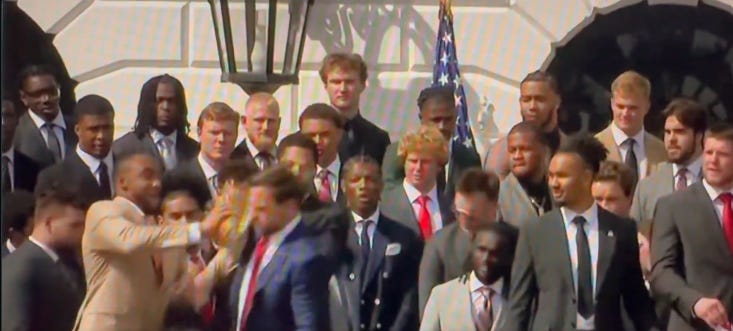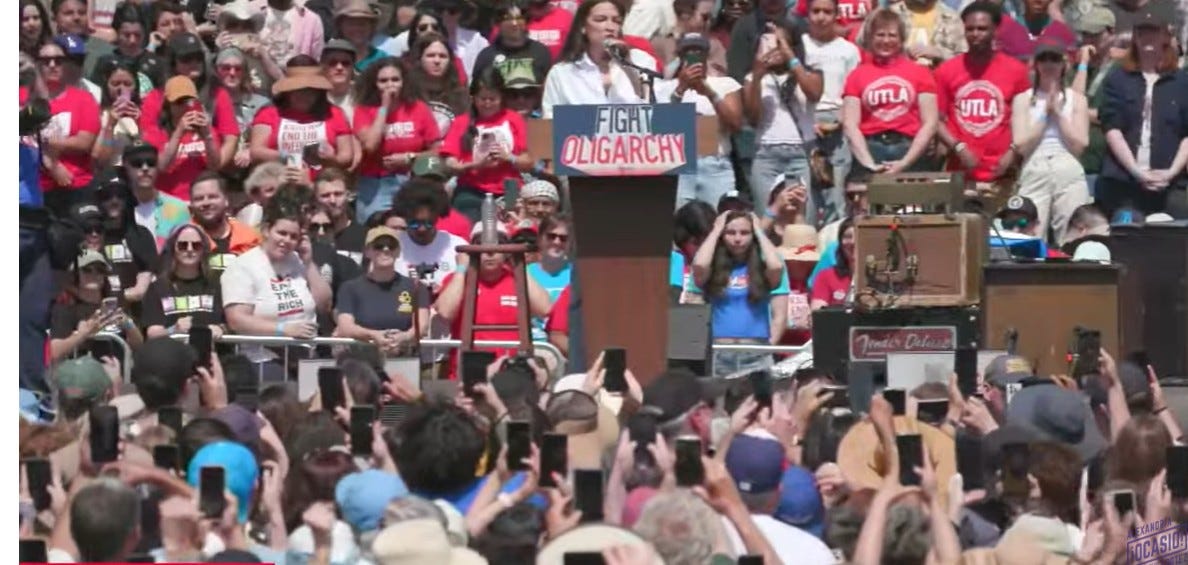Using the equivalent, by turns, of a scalpel or a machete, Donald Trump and de facto Chief Operating Officer Elon Musk have been relentless in their opening efforts to hack apart and incapacitate the executive branch of government. They have all but dismantled the U.S. Agency for Economic Development (USAID) and fired critical personnel—including heads of independent agencies, inspectors general, and career prosecutors. They have tempted employees to jump ship early with an unauthorized “deferred resignation program.” They have threatened massive reductions in force and office relocations, foreshadowing the attempted shutdown of government departments. They have proceeded with utter indifference to laws promoting the public interest through transparency, accountability, and procedural regularity.
No initiative better captures Trump’s approach than his resuscitation of the so-called “Schedule F” as part of our civil service. The idea is to change the legal classification of numerous nonpartisan federal workers, allowing Trump to fire them for any reason—a recipe for reprisals against employees perceived as disloyal. Shortly before the 2020 election, the first Trump administration instituted Schedule F; Joe Biden’s administration rescinded it and developed legal protections against it. Nevertheless, within hours of his inauguration, the 47th president revived Schedule F by executive order.
Our nonpartisan civil service is a hard-won national treasure. In the early Republic, Federalists and Jeffersonians no doubt preferred their followers in handing out government employment, but forcing people out of government jobs without just cause was considered inappropriate. With the ascendancy of Andrew Jackson, federal employment began to be doled out (and dismissals ordered) according to the “spoils system.” Political jobs were based on political allegiance. Congress eventually passed the Pendleton Act of 1883, creating the first merit-based federal employment system at the urging of Presidents James Garfield and Chester Arthur. Subsequent administrations expanded the range of positions covered by the Pendleton Act. President William McKinley—admired by Trump for other reasons—used his authority to create civil service rules providing “No removal shall be made from the competitive classified service except for just cause and for reasons given in writing.” McKinley also pioneered the requirement that any person threatened with removal receive advance notice, written reasons, and “a reasonable time for personally answering the same in writing.” Congress incorporated these reforms into statute in 1912.
Throughout the 20th century, Congress continued reinforcing the civil service, culminating in the passage of the Civil Service Reform Act of 1978. The CSRA, as it’s known, provides that “selection and advancement should be determined solely on the basis of relative ability, knowledge, and skill”—“without regard to political affiliation.”
One crucial way the CSRA advances this value is that the great majority of federal employees can be fired only for “cause”—not for partisan reasons. The government employer must give the employee notice of its reasons and an opportunity to respond. The employee may then appeal the agency’s decision to a neutral federal adjudicator and go to federal court.
There is a narrow carveout to these protections. Senior administration officials—those who hold positions that, in the CSRA’s words, are “of a confidential, policy-determining, policy-making, or policy-advocating character”—may be fired at will. That makes good sense and is consistent with well-established practice. Top political appointees (like senior aides and advisors) frequently turn over, especially at the start of a new administration—even as lower-level career officials (like economists and scientists) continue to serve regardless of who the President is.
Enter Schedule F, designed to blow up this longstanding system. The policy would classify career federal employees with substantive responsibilities (the economists and the scientists) as holding confidential or policy-determining posts, opening them to being fired for any reason or no reason at all. In other words, it would dramatically expand the civil service exception intended for political officials to cover enormous swaths also of the nonpartisan federal workforce. That is why the new executive order rather bluntly renames the initiative “Schedule Policy/Career.”
Schedule F is not merely an affront to sound governance principles. It is unlawful. That is for two principal reasons.
First is the CSRA itself. As explained, the law exempts “confidential, policy-determining, policy-making, or policy-advocating” employees from its broad job protections. But that narrow exception is not a license for the President to reclassify and arbitrarily fire any federal employee who does meaningful work. On the contrary, those words have a specific, longstanding meaning—they refer to political appointees. Since the New Deal, reformers, Presidents, and legislators have exclusively used the confidential and policy-making designation to describe the sorts of senior officials who lead agencies and assist those leaders directly. As one example, an influential presidential commission chaired by former President Herbert Hoover explained in the 1950s that “the term ‘policy-determining’ was used to describe positions which should properly be reserved for political executives.” For its part, the Merit Systems Protection Board—the federal body charged with applying the CSRA—holds “that the terms ‘confidential, policy-determining, policy-making, and policy-advocating’ are a shorthand way of describing positions to be filled by ‘political appointees.” Until President Trump’s first stab at Schedule F in 2020, that was the uniform position of administrations of both parties.
Because of this, Schedule F’s move to make career employees fireable at will is contrary to the law. Common sense confirms as much. President Trump’s allies have not hidden that the purpose of Schedule F is to permit political reprisals and patronage hiring—the precise evils that the civil service laws protect against. Congress could not have intended that a narrow exception to the CSRA could be used, in effect, to repeal the law itself and end the merit-based civil service as we know it.
In addition, Trump’s new Schedule F order illegally bypasses regulations issued under the Biden administration to reinforce the merit system for career professionals. The Biden rules put in regulatory form the traditional definition of “confidential, policy-determining, policy-making, or policy-advocating” employees. They provide that any employee moved involuntarily from the “competitive” to the “excepted” service—for example, under a new Schedule F—would retain the protections they previously had in the competitive service against arbitrary dismissal. Trump pretends that the rule is not binding. His new Schedule F order purports to tell the Office of Personnel Management, which oversees the civil service system, to treat the Biden regulations as “inoperative and without effect” until they can be formally rescinded. Yet that is unlawful. To treat rules as “inoperative and without effect” is, in effect, to rescind them, and rescinding the Biden rules requires OPM to follow the same painstaking notice, comment, analysis, and publication requirements that OPM was required to follow in issuing the Biden rule. OPM may be able to rescind the Biden rules, but it cannot be done by executive order. So long as that regulation remains on the books, it will obstruct the Trump administration’s implementation of Schedule F.
A lawsuit challenging the Trump order brought by Public Employees for Environmental Responsibility (PEER) raises the additional possibility that Schedule F if carried out, would also violate fundamental due process principles. The Fifth Amendment to the Constitution provides that the federal government may not deprive a person of property without due process. Tenure protections for public employees—like those afforded by the CSRA—create an expectation of continued employment that counts as “property” for constitutional purposes. Consequently, before federal civil servants may be fired, they are entitled to notice and a hearing—procedural safeguards closely tracking the CSRA’s protections. Similarly, it has long been understood, by courts and presidential administrations alike, that the CSRA itself bars the government from stripping federal employees of job protections they have accrued. So, even if President Trump could change the rules for newly hired career employees (he cannot, as just explained), the Constitution and the CSRA have long been understood to prohibit stripping protections from any employee once they have them. As the Merit Systems Protection Board has put it, once an employee is on the job, it is “too late to affect [his or her] rights.” Schedule F flagrantly violates those constitutional and statutory rules.
The civil service is the critical workforce that makes government work for the American people. Four-fifths of the service already lives and works outside the D.C. area, and according to a recent Pew Research Report, “the range of specific federal occupations runs literally from A (740 able seamen) to Z (43 zoologists).” As public policy professor Don Moynihan has written: “It is incredibly easy to bash bureaucrats, and both parties have done it. But public servants are now the front line against government abuses.” The stakes in opposing the Trump-Musk onslaught for governance and the rule of law could not be higher.











